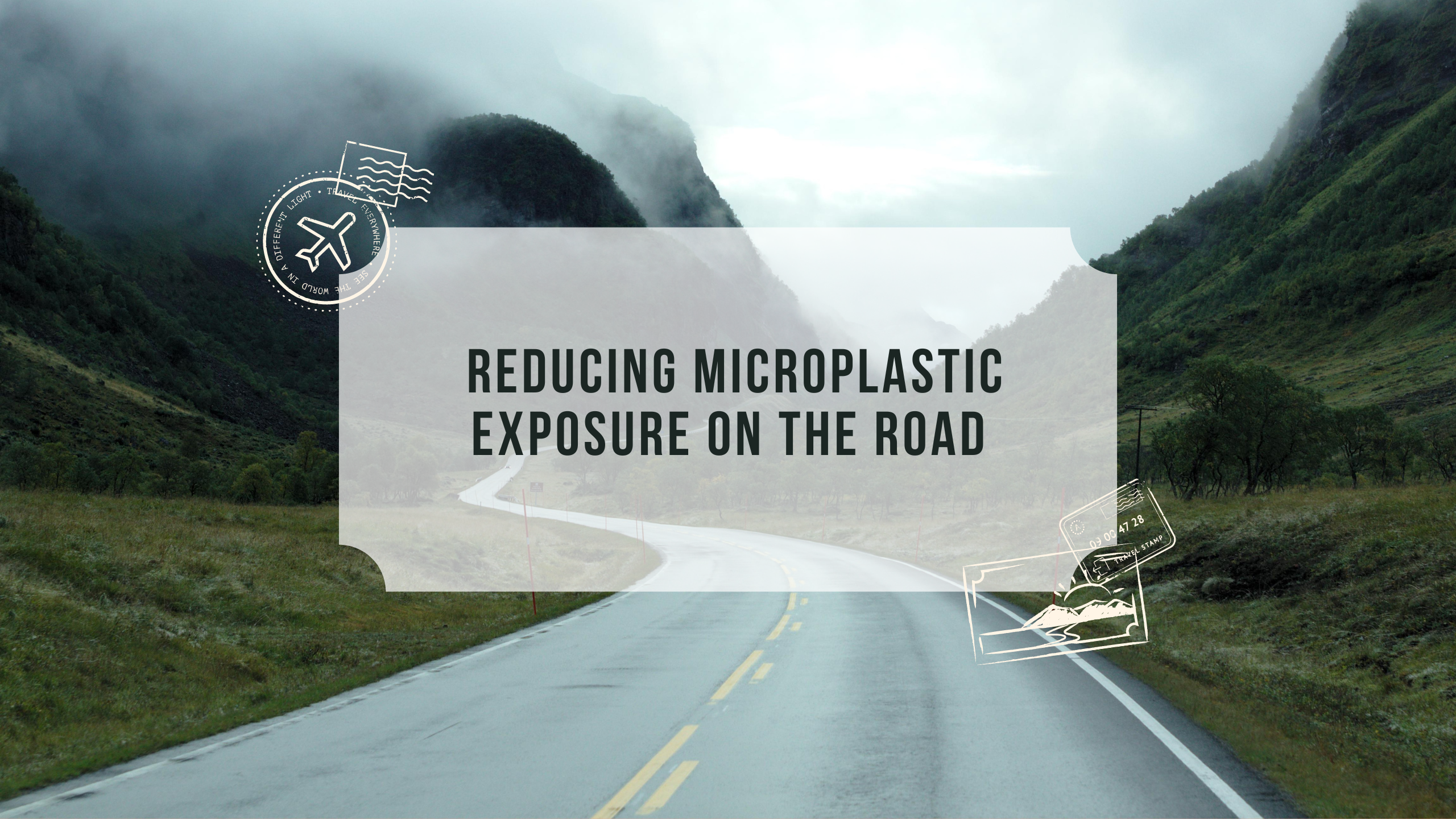Posted by
on
April 22nd is Earth Day, but such an important cause deserves a whole month of ways we can clean up our planet clean, reduce waste and limit environmental exposure to harmful toxins. As we hit the open road in our cozy homes on wheels, it’s important to think about the impact we have on the environment, especially when it comes to microplastics. These tiny pieces of plastic can be harmful to our planet, wildlife, and even our health. But fear not! With a few simple tips, we can reduce the use of microplastics while living life on the road.

Instead of relying on single-use plastics like water bottles, utensils, and bags, invest in reusable options. Stainless steel water bottles, bamboo or wheat flour utensils/dinnerware, and cloth bags are great alternatives that can be used over and over again. Plus, they’re easy to clean and store in your RV. My favorite find are the HOTEC Unbreakable Wheat Straw Bowls from Amazon, they’re colorful and durable. Perfect for life on bumpy roads!
When it comes to clothing and bedding, opt for natural fibers like cotton, wool, bamboo, or hemp instead of synthetic materials like polyester or nylon. Synthetic fabrics shed microplastics when washed, which can end up polluting waterways. By choosing natural fibers, you can help reduce microplastic pollution.
Check the labels of your personal care products, such as toothpaste, face scrubs, and body washes, to make sure they don’t contain microbeads or other microplastics. These tiny particles can easily wash down the drain and end up in our oceans and rivers, where they can harm marine life and pollute our drinking water. If you are looking for eco-friendly health and beauty products for the whole family, check out my Amazon Earthy-Friendly Shopping List HERE on AMAZON.
When shopping for groceries and supplies, look for items with minimal or no plastic packaging. Skip those plastic bags for produce. They’re not necessary. Buy in bulk when possible and choose products packaged in glass, paper, or cardboard instead of plastic. This not only reduces your plastic waste but also minimizes the potential for microplastics to enter the environment. Avoid food and drinks in plastic containers containing these numeric codes on them:
Phthalates and Bisphenols are commonly found in products like food wrap, vinyl flooring, personal care, and beauty products. Thermal receipts can also contain bisphenol, so opt for digital receipts instead of printed ones.
Invest in a water filter or purifier like the Itehil Water Purifier I reviewed recently to reduce microplastics in drinking water. This is particularly important if your water source is known to contain microplastic particles.
Dispose of your waste properly, making sure to recycle when possible. Avoid littering, as plastic waste left on the ground can eventually break down into microplastics which can harm wildlife and local fauna. Be mindful of where you dispose of your trash, especially when camping in nature.
By making these simple changes to our lifestyle on the road, we can minimize our contribution to the microplastic problem and help protect the planet for future generations of travelers. So let’s do #RVLife responsibly, with a commitment to reduce, reuse, and recycle our way to a cleaner, greener RV life and adventures!
DISCLAIMER: This post contains affiliate links for Amazon. If you purchase an item, I will earn a small commission on the item. Carolyn’s RV Life and Carolyn Higgins share her experiences, thoughts, opinions and ideas in this blog post and on this website for entertainment purposes only. It is not intended to be a substitute for professional advice, instruction or guidance. Viewers/Readers should consult with professionals before pursing any actions or behaviors exhibited in this video. Carolyn’s RV Life or Carolyn Higgins cannot be held liable in the event of any accident or injury that may occur as a result of application of procedures and information provided in this video.
Join the Fun! Subscribe to Carolyn’s RV Life email list and get stories, pictures, videos, advice, tips, and more!
Want to receive sneak peaks, insider news and exclusive content? Join the Carolyn’s RV Life Patreon Community!
One Response
Laundry sheets and laundry pods contain polyvinyl alcohol that disintegrate into microplastics. This can be a gray area if you get into the science, but it’s best to avoid these products. Liquid laundry detergent comes in plastic jugs that can be recycled but do not release microplastics at the consumer use level. Caveat: Is the plastic that we as consumers use really get recycled into new products? Apparently not as often as we would like, but returning it to recycling centers instead of putting it in the trash at least gives it a chance to be recycled.